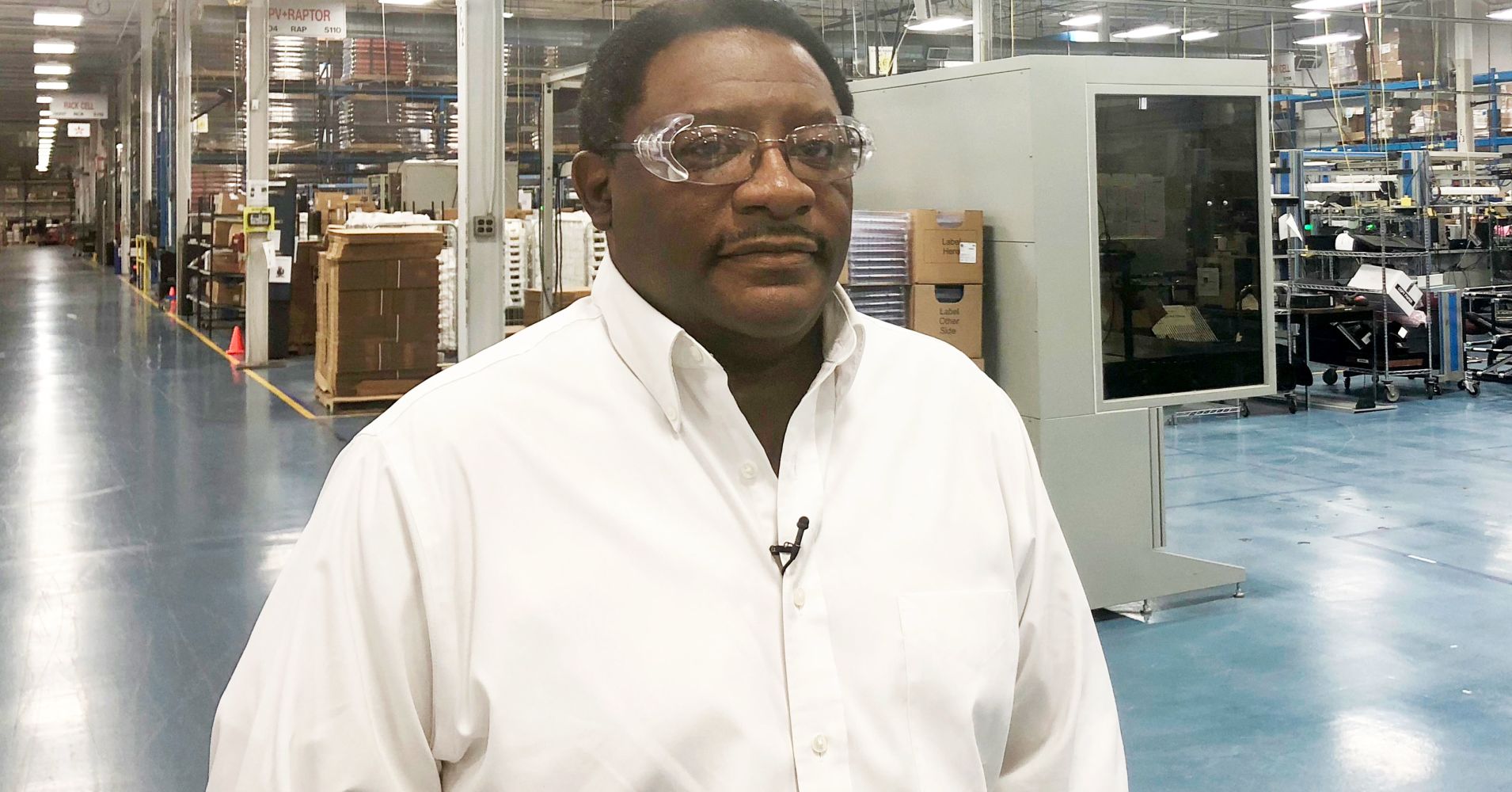The U.S. manufacturing sector is booming — adding 350,000 jobs since President Donald Trump took office in January 2017. But while a strong economy is helping to bolster the industry, it’s also being crunched by an increasingly tight labor market, leaving companies in short supply of workers they desperately need to meet capacity.
Due to a combination of economic expansion and baby boomer retirements, the Manufacturing Institute projects that by the year 2025, some 2 million jobs within the industry will go unfilled. The National Association of Manufacturers said about 500,000 manufacturing jobs are open.
The problem, experts say, is a severe skills gap.
“One of the biggest challenges facing our sector right now is the lack of that skilled workforce to fill open jobs,” said Carolyn Lee, executive director of the Manufacturing Institute, NAM’s social impact arm. “Part of the reason for this challenge is that people don’t understand what modern manufacturing is all about — so perception is a big issue. People think of manufacturing as old and antiquated when it’s not.”
The evolution of manufacturing can be felt instantly at Rockwell Automation’s Twinsburg, Ohio, facility which is sleek and outfitted with a connected enterprise system, helping to automate procedures for workers and increase efficiency. Rockwell, headquartered in Milwaukee, provides products that help companies in nearly every industry — from pharmaceutical giants to automakers and even amusement parks — to streamline their operations by integrating control and information across their systems. In the U.S., Rockwell is hiring for some 140 manufacturing roles right now and is willing to take on unskilled workers to train and get them up to speed.
“We want to bring people in that we can train,” said Eric Crump, director of Manufacturing for North American Operations at Rockwell. “We have a robust training process, so we can bring people in who are unskilled, have them get certification through various processes within the plant, and allow them to grow in their career.”
The company has new hires work with a mentor during their training, which can take up to 12 weeks. The training allows workers to be certified in various manufacturing procedures. Rockwell also offers a competitive benefits package that includes health insurance on day one and tuition reimbursement at accredited colleges and universities. Nationally, manufacturing workers have average annual pay of around $80,000 along with significant benefits, according to NAM.
“The best workers you can have are your current workers,” said Lee. “So companies are investing in upskilling and reskilling their existing workers — giving them new skills, providing them with opportunities and allowing them to grow into that next job.”
Tuition reimbursement and company culture at Rockwell helped to attract Taylor Williams, 24, who serves as team leader in Twinsburg. The company paid for her bachelor’s degree from Tiffin University in Ohio.
“They invested in me, and that means a lot to me — they taught me leadership skills, time management skills and collaboration skills,” Williams said.
Being an automation company doesn’t mean skilled labor isn’t needed at Rockwell, or that people are being replaced by machines.
“Even though we are an automation company, people are in fact our most valuable asset,” said Blake Moret, Rockwell Automation’s chairman and CEO. “It’s people working in close concert with technology but still using what people know best — using their ingenuity and decision-making skills to be able to add additional productivity on top of basic technology.”
Depending on the industry and the company’s import and export relationships, manufacturers stand to be hit with varying impacts from trade policy. Rockwell is moving forward with hiring plans while uncertainty looms with both tariffs and potential renegotiations to the North American Free Trade Agreement.
The company said it supports a “thoughtful refresh of NAFTA that sustains and grows higher-paying U.S. jobs and increase in U.S. manufacturing production, exports and competitiveness. At the same time we have to recognize and continue to support the strong and deep commercial relationship between the U.S., Mexico and Canadian businesses,” adding it will continue to monitor ongoing negotiations.
On tariffs, Rockwell notes its flexibility in global sourcing capacities as an international manufacturer with customers in more than 80 countries. But like many, it’s waiting to see what impact new trade policies stand to have.
“The uncertainty around tariffs is certainly not helping us and our customers make plans for the future,” Moret said. “But we haven’t seen it have a material impact on our operations at this point. The larger impact would be what it does to our customer spending.”
CLARIFICATION: Following Friday’s August jobs report, this article was updated to show the U.S. manufacturing sector has added 350,000 jobs since President Donald Trump took office in January 2017.


 Signal2forex.com - Best Forex robots and signals
Signal2forex.com - Best Forex robots and signals




